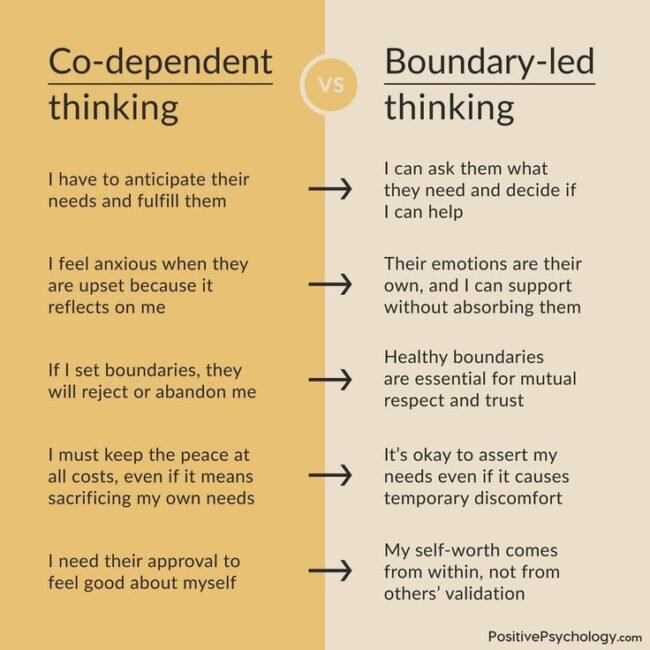Sometimes, the language of “codependency” gets weaponized against people—especially women—who were raised to care, tonurture, to serve. Humans
Sometimes, the language of “codependency” gets weaponized against people—especially women—who were raised to care, to

Photo by Dushawn Jovic/Unsplash.com
nurture, to serve. Humans are relational. We do need one another. We’re interdependent.
In truth, there’s a spectrum: we can honor connection while practicing boundaries. The real work is discerning when care crosses into self-erasure.
Boundary-led thinking gets posited against codependent thinking because one is about self-protection and clarity, the other about self-sacrifice and entanglement.
Boundary-led thinking: Emphasizes clarity, protection, and self-respect. It’s about defining where you end and another begins—your values, your limits, your energy. The focus is on autonomy and mutual respect.
Codependent thinking: Often centers on self-sacrifice, rescuing, or living through another person’s emotions, decisions, or validation. The focus tilts toward maintaining connection at any cost, even if that cost is dignity or health.
People contrast them because boundaries require self-definition, while codependency often dissolves the self into others.
Survivor Affirmations: Boundaries
I do not shrink to make room for someone else’s shadows.
My “no” is not a wound—it is a wall of protection built with wisdom.
I deserve relationships that add light, not layers of confusion.
Peace is not negotiable; it is a boundary I honor with every breath.
I am not required to explain why I protect myself. My boundary is reason enough.

